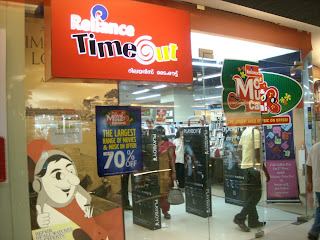Push
A “push” promotional strategy makes use of a company's sales force and trade promotion activities to create consumer demand for a product.
The producer promotes the product to wholesalers, the wholesalers promote it to retailers, and the retailers promote it to consumers.
A good example of "push" selling is mobile phones, where the major handset manufacturers such as Nokia promote their products via retailers such as Carphone Warehouse. Personal selling and trade promotions are often the most effective promotional tools for companies such as Nokia - for example offering subsidies on the handsets to encourage retailers to sell higher volumes.
A "push" strategy tries to sell directly to the consumer, bypassing other distribution channels (e.g. selling insurance or holidays directly). With this type of strategy, consumer promotions and advertising are the most likely promotional tools.
Pull
A “pull” selling strategy is one that requires high spending on advertising and consumer promotion to build up consumer demand for a product.
If the strategy is successful, consumers will ask their retailers for the product, the retailers will ask the wholesalers, and the wholesalers will ask the producers.
A good example of a pull is the heavy advertising and promotion of children's’ toys – mainly on television. Consider the recent BBC promotional campaign for its new pre-school programme – the Fimbles. Aimed at two to four-year-olds, 130 episodes of Fimbles have been made and are featured everyday on digital children's channel CBeebies and BBC2.

























